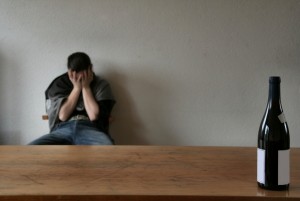 I wrote a paper about this topic some time ago, but thought I would post a more parsimonious version of the top 10 reasons treatment fails patients. The point is not to suggest that treatment is always ineffective, just that we have a long way to go to optimizing it for those who struggle overcoming addictive behavior.
I wrote a paper about this topic some time ago, but thought I would post a more parsimonious version of the top 10 reasons treatment fails patients. The point is not to suggest that treatment is always ineffective, just that we have a long way to go to optimizing it for those who struggle overcoming addictive behavior.
Top 10 reasons treatment fails patients
- Treatment focuses on select objects of addiction and does not address the entire package of addictive behavior.
- Often lasting days or a few months treatment is way too short, instead of years like other chronic medical conditions.
- Relies heavily on group therapy, an abstinence-based approach, and use of 12-step principles instead of individualizing treatment to patients needs and using a wide range of evidence-based practices.
- Underlying mental health, trauma, and developmental deficits and constrictions go unaddressed or under treated.
- Medications specifically approved by the FDA to treat addictions, including Naltrexone, Acamprosate, Buprenorphine, and Methadone, are underutilized in treatment.
- Overly focuses on the pathological side of the equation, and does not encourage interventions based on positive psychology and creativity.
- Treatment programs forget they are running a business, and that patients really are customers, even when they are mandated to treatment.
What would treatment be like if funding was based on outcomes specific to customer satisfaction? - Too much emphasis is placed on stage models of treatment when there is a much stronger base of evidence for universal processes of change.
- Treatment programs see less than 10% of those in need of help. How can programs better align themselves with the needs of their community and broaden the use of their resources to help a greater number of people (i.e., population-based medicine).
- Treatment often remains disconnected from other important healthcare and community stakeholders. Disconnects between criminal justice, primary care medicine, policy makers, and others.
Many people fall through the cracks and ultimately fail treatment.
Perhaps you can add a few to the list?
Certainly, it is very difficult for addicted individuals to follow specific guidelines about treatment. An addicted person requires treatment for the rest of their life. I think that after finishing those few days or months of treatment, a yearly two week retreat would help keep the patient inspired, and remind them that they have support in their drug-free struggle.
I also know that unfortunately, as in all jobs, not all people who are in health care treat their clients very well. I have met all kinds of doctors, both good and bad, and returning home unsatisfied discourages me. I don’t think anything can be done about this, however, because I don’t believe there are enough applicants to make a more rigorous hiring system based on ethics and professionalism.
Lastly, before reading your blog, I had never realized that the 12-step process was so limited. I looked up the 12 steps of Alcoholics Anonymous, and I saw that they all had to do with believing and putting faith in a higher being, God, for most people. I know that this will not work with atheists or people who may have lost faith because of past experiences. I’m sure professionals and psychologists could come up with a more effective method, and if the war on drugs wanted better results, addicts should overcome their dependence. The first step is getting together a group of professionals and working on a new method, and I’m sure this could be achieved successfully.
I was a little more than shocked to find out there are treatment homes located in the low-rent areas of Chinatown, Downtown Portland, right next door to the bars & nightclubs that are also benefiting from the low rent. With the streets blocked-off for bands playing on the corners till the wee hours of the night, people screaming, hooting and urinating in the streets below – how can we expect alcoholics and drug addicts to heal from their addictions when we send them to Party Row for rehabilitation?
That’s like holding a Gamblers Anonymous meeting in a Casino.
You wouldn’t move the Casino. You would find a new place for the GA meeting. The bars and clubs can’t be moved, and I say let them have Chinatown. I think the Treatment Homes need to be moved to a quiet, non-triggering environment so these people can heal in peace.
Laura, you make some very good points! Thanks for the feedback.
J